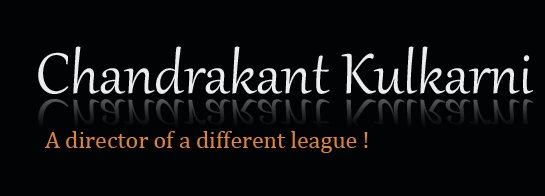| Mohan Gokhale (The Sunday Times of India, July 21, 1991) |
Atul Kulkarni (PT Notes -May 2001) |
|||
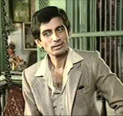 |
I have been fortunate in working with good directors who are also excellent actors - Jabbar, Vijayabai (Vijaya Mehta), Damu Kenkre, Ketan Mehata. Chandrakant Kulkarni with whom I worked this time, is also a good actor. So he can communicate with us actors, convey what he wants.
Initially, I tried to get my own way, I argued a lot; but he managed to tame me, to get exactly what he wanted from me without any fuss, right down to the correct intonations. He worked on the scripts, going into the minutest details, molding even minor characters like the nurse and the ward boys. I feel he'll go places! |
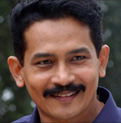 |
I worked with Chandrakant Kulkarni in Gandhi Virudh Gandhi. We first did the play in Marathi. A commercial play has its restriction because the producers lay down certain demands of their own. The best thing about Kulkarni was that he took his own time in order to do justice to the material in hand. We rehearsed Gandhi Virudh Gandhi for sixty five to seventy days. We read the play a number of times and had a lot of discussions. By the time the play went on the floor, the play had been memorised. That actually helped me a lot because it was important for me, to get totally into the character. The readings and discussions provided the platform. Doing the play in Gujarati and Hindi was also a good experience because the audience was different every time. | |
| Waman Kendre (PT Notes -May 2001) |
Amol Palekar (Indian Express - Sept. 11, 1997) |
|||
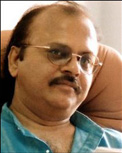 |
He has very good strengths as a director. He's very choosy about his subjects. He tries something new each time. Chandrakant has contributed a lot to Marathi theatre. I hope to see more of his work in the near future. | 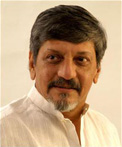 |
I think Chandu is one of the most important Marathi directors. Someone who can take a big risk like the trilogy at the peak of his commercial success and take the audience with him, has to have a lot of courage and conviction. | |
| 1 | 2 | 3 | 4 | ||||
